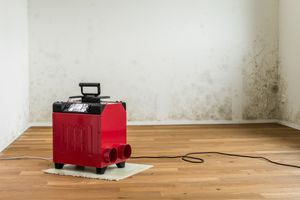
Sometimes pipes burst, sump pumps fail, or severe weather will lead to a flooded basement. No matter the cause, you’ll want to act fast to mitigate the problem. Besides calling for a plumber, there are several things you should do to avoid causing additional damage to your property or person.
What to Do When You Have a Flooded Basement
1. Don’t Enter The Flooded Area
A flooded basement can be full of unseen dangers. For example, electrical wires could be exposed, or the water could contain pests, harmful bacteria, or sewage.
2. Remove The Water
Make sure no w ater is currently entering the basement and turn off all electricity. Then, call a plumbing company equipped with a submersible pump to deal with flooded basements.
ater is currently entering the basement and turn off all electricity. Then, call a plumbing company equipped with a submersible pump to deal with flooded basements.
3. Remove Damp Objects
Deal with all salvageable items as quickly as possible. Place them in a safe, warm area with a lot of air circulation. It’s important these pieces dry fast to avoid mold and mildew growth.
4. Dry The Area
Once a plumber has pumped out the flood, use towels to soak up remaining water. Run a dehumidifier for a full 24 hours to remove as much moisture from the room as possible.
5. Try to Prevent Mold From Growing
Using a dehumidifier will help, but it won’t prevent mold from growing on all surfaces. Apply a bleach-based cleaner to all walls, flooring, and bleach-safe furniture. Carpet and drywall might need replacing.
6. Take Steps to Prevent Future Floods
A licensed plumber can make sure your plumbing is up to code, and a plumbing company can also install a sump pump to keep your basement dry when it rains.
With an A+ rating from the Better Business Bureau, Service Plus Plumbing in Canterbury, CT, has been helping residents and businesses in Northeast and Southeast Connecticut with flooded basements for more than 30 years. Their licensed and insured team specializes in water pressure issues, sewer and drain problems, and root removal. To schedule an appointment, call (860) 234-9346, or visit them online.
About the Business
(3 reviews)
Have a question? Ask the experts!
Send your question

